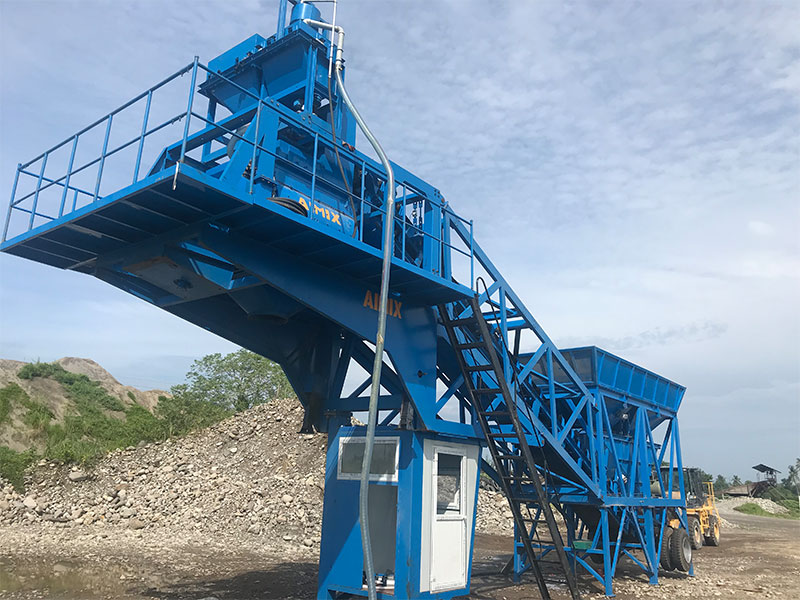Importing a mobile batching plant can be a significant investment for construction companies and project managers. These portable plants are essential for producing concrete on-site, which can improve efficiency and quality control in construction projects. However, before you dive into the process of importing a mobile batching plant, several crucial considerations and steps need to be addressed. In this article, we will outline the key aspects that you should keep in mind to ensure a successful importation.
1. Research and Product Selection
Before importing a mobile batching plant, conduct thorough research to understand your specific needs and the available options. Start by defining your project requirements, including the required production capacity, the types of concrete mixes you'll be producing, and any specific features or functionalities you need.Once you have a clear understanding of your needs, research various manufacturers and suppliers to find a mobile batching plant that matches your requirements. Consider factors such as the machine’s quality, capacity, reliability, and the availability of spare parts. Request quotes and product specifications from multiple suppliers to make an informed decision.
2. Legal and Regulatory Requirements
Importing machinery, including mobile batching plants, involves complying with legal and regulatory requirements. These regulations can vary significantly from one country to another. Before making a purchase, ensure that you are aware of the import regulations in your country and any specific requirements related to construction equipment.Check if you need to obtain permits, licenses, or certifications to import and operate the mobile batching plant. Compliance with safety standards and environmental regulations is crucial. Consulting with customs officials or a legal expert who specializes in international trade can help you navigate these requirements effectively.
3. Budget and Financing
Establish a clear budget for the importation of the mobile batching plant. Your budget should encompass the purchase price, transportation costs, import duties, taxes, and any additional fees associated with the import process. It's also important to account for potential currency exchange rate fluctuations if you are dealing with a foreign supplier.Consider your financing options, such as whether you will pay for the equipment upfront, use a letter of credit, or explore financing arrangements with your bank. Understanding the financial aspects of the importation process is critical to avoid unexpected expenses and budget overruns.
4. Supplier Evaluation and Communication
Choosing the right supplier is crucial to the success of your importation. Evaluate potential suppliers not only based on price but also on their reputation, experience, and customer service. A reputable supplier will provide you with quality equipment, offer support during the import process, and assist with after-sales services.Establish clear communication channels with the chosen supplier. Discuss payment terms, delivery schedules, and any customization or special requests. Ensure that the supplier understands your project’s specific requirements and can provide the necessary technical support.
5. Shipping and Logistics
Shipping and logistics play a pivotal role in the importation of a mobile batching plant. Consider the method of transportation, whether it's by sea, air, or land, and evaluate the shipping costs and transit times. It's also essential to choose a reliable logistics provider who can handle the safe and efficient delivery of the equipment to your project site.Address customs clearance procedures and ensure that you have all the necessary documentation for a smooth importation process. This includes the bill of lading, commercial invoices, packing lists, and certificates of origin. Collaborate closely with your logistics provider to navigate any potential delays or challenges during the importation.
6. Installation and Training
Once the mobile batching plant arrives at your project site, you'll need to plan for its installation and commissioning. Work with the supplier to ensure that trained technicians are available to set up and test the equipment. Verify that all components are in good working condition before the plant becomes operational.Consider providing training for your operators and maintenance staff to ensure they can effectively operate and maintain the mobile batching plant. Proper training can enhance safety, efficiency, and the overall performance of the equipment.
7. After-Sales Support
The relationship with your supplier shouldn't end after the purchase and installation of the mobile batching plant. Ensure that the supplier offers reliable after-sales support, including access to spare parts, technical assistance, and maintenance services. This ongoing support is essential to keep your equipment running smoothly throughout the duration of your construction projects.In conclusion, importing a mobile batching plant requires careful planning, research, and adherence to legal and regulatory requirements. By taking these considerations into account, you can navigate the importation process successfully, ensuring that your construction projects benefit from the efficiency and flexibility that these portable plants provide.


Comments
No comments yet. Be the first to react!